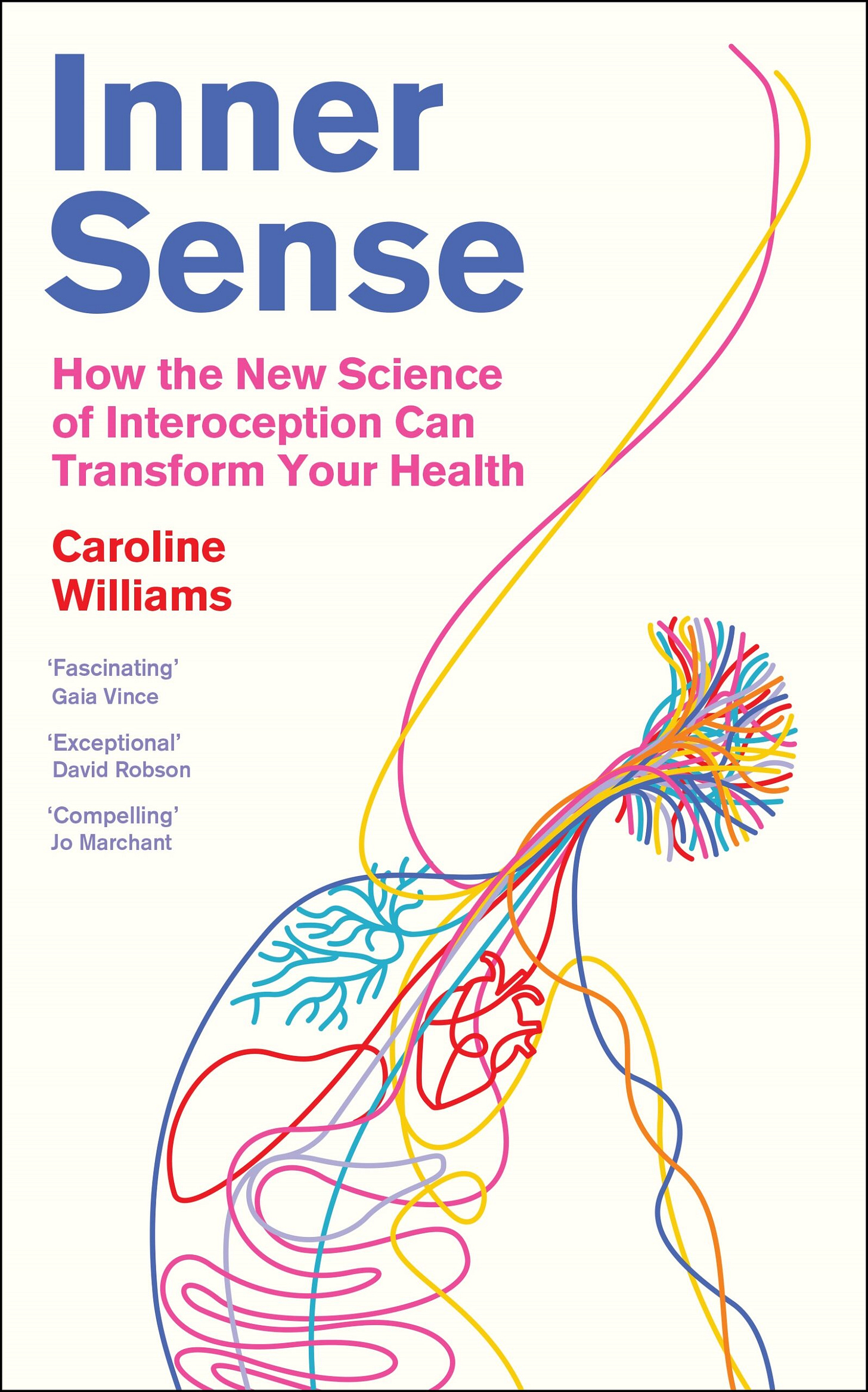The secret sense that controls your health, wealth and wellbeing
Interoception and the embodied mind | Magic and free will
Hello, and welcome back to 60-Second Psychology.
This week’s edition is inspired by Inner Sense, a fascinating new book by the science writer Caroline Williams. Its title refers to interoception – our capacity to tune into the body’s internal signals, as opposed to those relaying information from the outside world. “It is not only the centre of our personal universe,” Williams argues, “but one of the most important concepts to emerge in science and medicine in decades. One that has the potential to bring better wellbeing, less stress, more energy, and new treatments for common, hard-to-treat conditions that affect mind, body, or both.”
Interoception includes the sensations of your heart beating in your chest, your lungs expanding and contracting, and your gut becoming full during a meal. Together, these signals contribute to the ineffable feeling that you are healthy or ill, strong or vulnerable, and they will change in response to the brain’s non-conscious processing, leading some researchers to propose that they are the source of our intuition.
Our interoception also underlies our empathy: the ability to tap into the feelings of others. “We don’t just do this by recognising the outward signs of joy or pain in their bodies,” Williams writes. “Our bodies also change so we feel their emotions as if they were our own.”
In all these ways, the mind extends well beyond the 1.3kg of grey matter that is usually considered the lone seat of thought. “A disembodied brain wouldn’t be wise, it wouldn’t be rational, it wouldn’t even be angry about its predicament. If you got anything from it at all, it would probably be something along the lines of ‘Huh’.” There is a constant two-way traffic between the brain and the body that rules our intellectual and emotional lives.
If you’d like to check how easily you can tap into your interoceptive signals, sit very still and try to feel your heart beating inside your chest. When you are ready, start counting the beats for one minute – while someone else (or a smartwatch) measures your pulse. Then compare the two.
Most people get around 60-70 percent accuracy, but some have almost perfect scores – and this seems to bring them some distinct advantages in life. Williams describes the story of Chris White, for example, a crisis and hostage negotiator for the London Metropolitan Police who can monitor his own heart rate with almost 100 percent accuracy.
White claims that this helps to guide his negotiations in hostages, armed sieges and terrorist stand-offs. “I can generally tell the moment when someone becomes receptive to suggestion,” he told her. He describes his inner sense as a kind of “radar”.
Financial traders with more acute interoception, meanwhile, have better intuitions about financial markets – leading to higher earnings and longer careers. “Those who were still on the trading floor fifteen years after their first day had an [interoceptive] accuracy of 85 percent,” Williams writes.
It’s not all about decision making; people who train their interoception appear to be able to manage their emotions better, which helps them to cope with stress. The inner sense may also prevent us from overeating by giving us better feedback on our stomach’s contents.

Williams also points to emerging research showing that, through interoceptive signalling, the state of our muscles can influence our confidence in ways that go well beyond our perceptions of our looks. “Upgrade your body’s musculoskeletal hardware, and inner strength should follow.” That is one more reason for me to head to the gym this morning.
I’ve barely skimmed the surface of all the ways this new science can enhance our lives – I’d thoroughly recommend Inner Sense to anyone interested in exploiting the mind-body connection.
What magic tells us about free will
My latest feature for New Scientist profiles Gustav Kuhn from the University of Plymouth, who has spent the past 25 years establishing the “science of magic”. Here’s a short extract:
Illusionist Derren Brown became famous for his ability to plant the idea of a particular card in participants’ minds. To examine this scientifically, Kuhn’s colleague Alice Pailhès recorded a video with the following script. “I’m going to try to transmit to you the identity of this card,” she says, while holding up a card with its back facing the camera. “Imagine a screen in your mind, and on this screen, the little numbers low at the bottom of the card, in the corners, and at the top, and then the things in the middle, in the centre of the card… and in the middle of the card.” The viewer then writes down what was in their mind.
The words give very little away. Pailhès’s presentation, however, incorporates some non-verbal signals that are designed to lead the person watching towards picking the three of diamonds. While asking them to picture a screen, for instance, she makes a diamond sign with her fingers; she also draws the figure 3 in the air while describing the numbers on the card.
If you are sceptical that such tiny gestures could influence anyone’s behaviour, you aren’t alone: “I was convinced it wouldn’t work,” says Kuhn. He was happily proved wrong. The probability of selecting the three of diamonds at random is 1 in 52, or 1.9 per cent, but around 10 times that figure – 17.8 per cent of the participants – chose the card. Even if they didn’t get the exact combination, they were considerably more likely than chance to pick either the correct suit (33.3 per cent) or the correct number (38.9 per cent). “Unconscious priming is super rare, and the effects are generally quite small,” says Kuhn. “So I was very surprised by how reliable that effect was.”
One final note: yesterday, I was happy to see that I’d passed 1000 subscribers! Thank you to everyone who has helped me to get this far. I’m always considering ways to improve the newsletter’s offering, do get in touch if you have any suggestions for topics you’d like me to cover in the future – and please continue to share with anyone who might be interested.
That’s all for this week. I’ll be taking a break over Easter and back on 26 April. Have a good weekend!
David x




